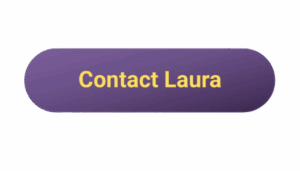Years ago, when I was still a student, I attended the grand opening of a gourmet cheese and charcuterie shop in downtown Philadelphia.
A local newspaper reporter was there, and we got into a fantastic conversation about all things epicurean. We talked about regional cheeses, flavor pairings… the nerdy, foodie stuff I genuinely enjoy.
So imagine my surprise (and horror) when the article came out and the only quote the reporter pulled from our entire exchange was when at some point I apparently said:
“I’m a cheese person.”
That was it.
I wanted to disappear. And of course, the very next day, the first person to quote it back to me was my dissertation advisor, smirking:
“Oh — so you’re a cheese person, huh?”
That was the moment I realized: If you don’t intentionally give people something good to quote, they’ll find something else.
And you might not like what they choose.
What Does It Mean to Be “Tweetable and Repeatable”?
One of the most important lessons I teach my executive coaching clients is how to make their key points what I like to call tweetable and repeatable — whether they’re giving a keynote, presenting to the board, or being interviewed on a global news network.
A message is tweetable and repeatable when it meets three key criteria. It must be:
- Easy to understand
- Easy to remember, and
- Easy to repeat.
(If you just found yourself wondering, “Hey Laura, are those three bullets an example of a ‘tweetable and repeatable’ message?”, then bonus points for you!)
This idea takes its name from the original Twitter platform, which limited posts to just 140 characters. That forced people to boil their ideas down to the absolute essence — no fluff, no filler, just clarity.
“But I can’t summarize all my content into a few key phrases,” you may protest.
Yes you can, and you must.
Here’s why:
Whether you speak for two minutes or two hours, your audience will not remember everything you say.
They’ll remember a sentence or two at best — more likely a few random, general concepts. But if you can’t accurately summarize your own key points, what are the odds that they will get it right? Odds are, it’ll get watered down, distorted, or completely misrepresented.
That’s what they’ll take back to their team, their leadership, or their followers.
In other words: If not you, then who?
Real-Life Application: Coaching a CFO for a National TV Interview
One of my clients was the CFO of a global chemical company. He had been invited to appear on a major financial news network to share insights on current market trends.
Here’s the catch: The entire interview would be three to four minutes. That’s barely enough time to introduce yourself, let alone unpack complex industry insights.
So we got strategic.
We identified the three most important points he wanted the audience to walk away with — no matter what questions the host asked.
Not because he planned to hijack the conversation, but because he knew there were key messages his company needed the public to hear in order to:
- Serve the viewers with valuable information
- Reassure stakeholders
- Position the company – and himself – as a trustworthy authority
Then we “funneled” each message.
- First, I recorded him talking freely about one point for 90 seconds.
- Then we repeated the exercise three more times in decreasing intervals: one minute, then 30 seconds, then 15 seconds.
- Each time, we chiseled away every non-essential word until we had clean, compelling soundbites ready to use naturally throughout the interview.
By the end, he had exactly what he needed: three tweetable and repeatable phrases that rolled off his tongue naturally, and delivered clarity, credibility, and confidence.
Why Producers and Hosts LOVE a Great Soundbite
This isn’t just about public speaking. It’s about media intelligence and message control.
Whether you’re on a live TV segment, recording a podcast, or featured in an online print article, producers are constantly scanning for 5-second gold.
They need:
- One line that sums up your insight
- One quote that hooks people on social media
- One moment they can use as a preview or highlight
And if your interview runs long, they’ll cut other parts of the conversation to make room for that one soundbite — if you give them something worth keeping.
If you don’t? They’ll choose whatever stands out.
And just like “I’m a cheese person,” it might not be what you want.
That’s why I make sure to practice what I preach.
In fact, I had to apply this same strategy myself for my upcoming guest interview on the STEM in Stilettos podcast with Zophia Morales.
In a world of thought leadership, interviews, and short-form content, it’s not just about being smart — it’s about being quotable and memorable.
“You’ve Become a Meme.”
Not long ago, I led a media training workshop for a client’s executive team. A few days later, I got a note from her after the team’s next meeting.
She said: “You’ve become a meme! Now everyone asks each other, ‘What would Dr. Laura say? How do we make that more tweetable and repeatable?’”
Mission accomplished.
If You Want to Be Influential, Be Repeatable
Here’s the bottom line: If your message isn’t repeatable, it’s forgettable. And if you’re forgettable, your influence suffers.
But when your message is tweetable and repeatable, something magical happens:
- People quote you.
- People trust you.
- People want to follow you.
→ When your words stick, so do you.
Ready to Make Your Message Land?
If you know your success depends on getting your messages across — clearly, powerfully, and memorably — but you regularly struggle with how to boil them down in a way that is pithy and powerful, contact me here.
Let’s figure out how to make your ideas stick, your leadership voice truly resonate and your influence grow.




